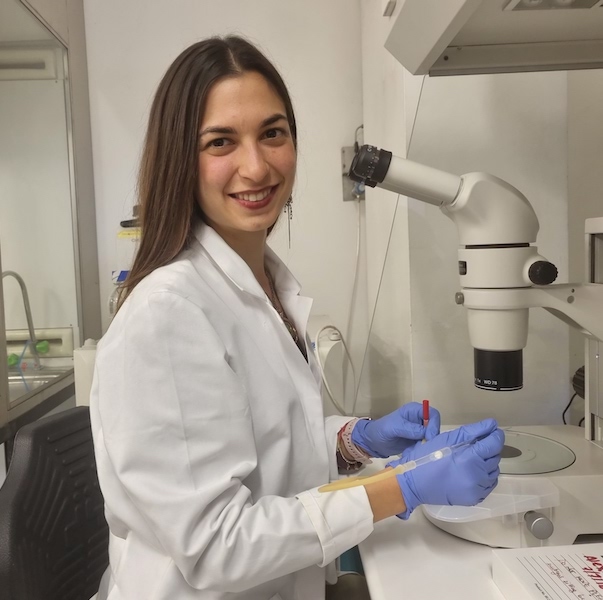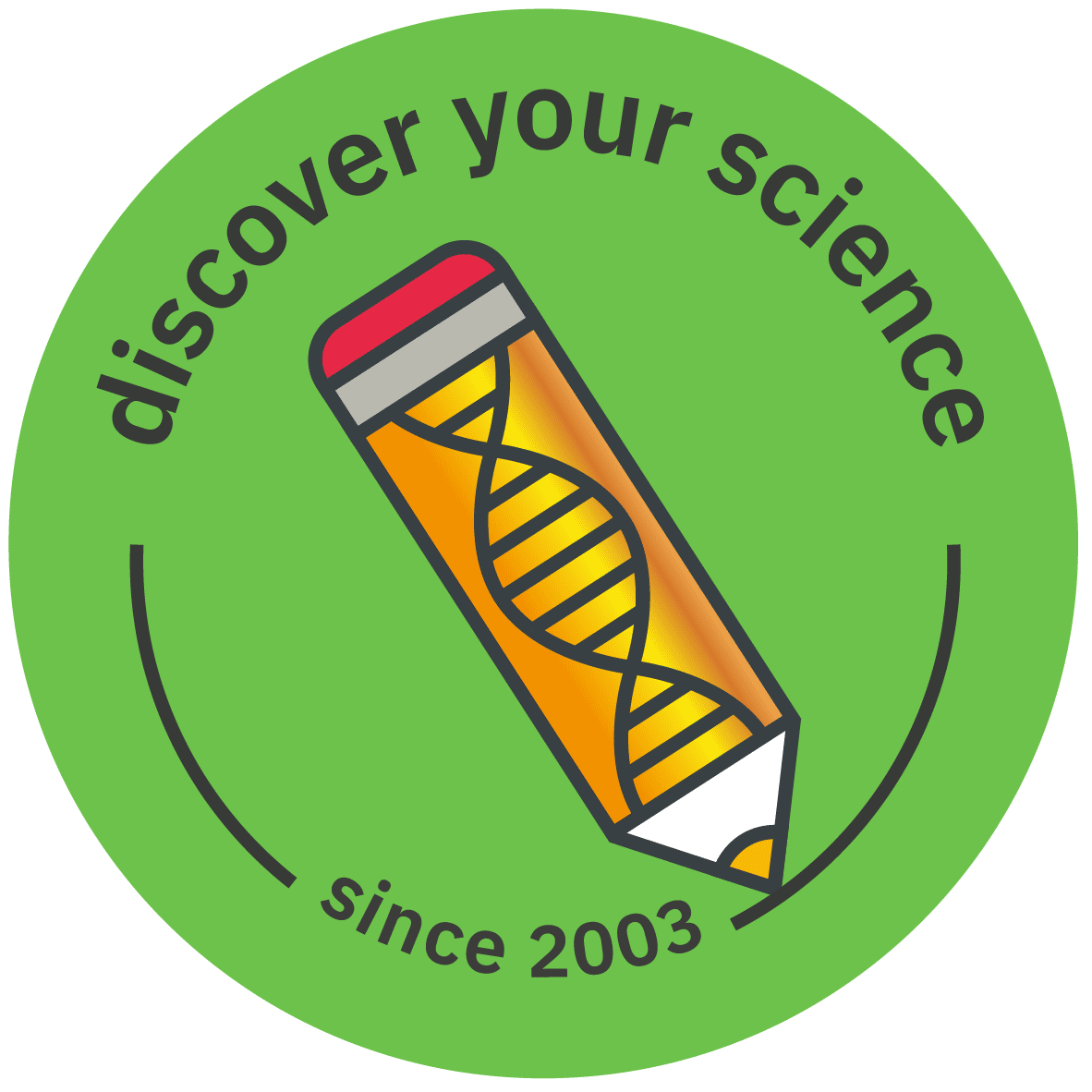EMBL School Ambassador Sara Formichetti
Country: Italy
Profile
Ciao, I am Sara Formichetti and I am a 4th year PhD Student in the lab of Matthieu Boulard at EMBL Rome. I was born and raised in Rome, where I studied Biotechnology as a Bachelor and Medical Biotechnology as a Master, after a Scientific High School. Half of my personality has been willing to pursue music and dancing since I am a child, but the other half has always been excited about solving scientific problems and scientific questions in general. In the world around us I was attracted by understanding the “nanoscopic” world: the building blocks of life and of matter in general. Something that we cannot see – but that we can imagine! After a long internal debate between studying Particle Physics or Molecular Biology, I chose the latter. Then from the first University classes I got captured by the complexity of the mammalian genome. I keep being loyal to this main curiosity, which at the last year of my PhD brought me to such a fascinating question (to me) about our genome: how it starts working for the first time in the embryo after fertilization. During my school visit, I tried to convey to the students the excitement of looking at two gametes becoming a new individual. And the beauty to do research, because it is indeed a special job. The two features I love the most of this “job”: freedom and creativity, which you can experience every day, like in performative arts.
I always thought that doing outreach – both to the younger generations and to the general public – should be part of the responsibilities of every scientist. If each one of us does a bit, we would start solving those issues in current world related to misinformation and misunderstanding of science. If scientists make an effort explaining their research, it would be easier for journalists to interpret it correctly. Furthermore, if scientists are closer to the rest of the citizens, the latters – and ultimately politicians – would start trusting more the work and voice of researchers.
The pandemics made me appreciating this even more, when I joined a group of young Italian scientists and science communicators who wanted to explain COVID-related biology and statistics to the general public. I wrote some of the biology articles for this group of enthusiastic peers and I really enjoyed seeing I was being helpful to people in understanding better what they were reading on the news. It can indeed make a (small but significant) difference.
Diary
5 November 2021, visit to Scientific High School IIS Biagio Pascale in Rome, Italy
On the 5th of November, the day after my birthday, I gave myself the best present: the opportunity to share my enthusiasm for this “job” called research with high school students. I was particularly lucky to be able to meet two classes from the last year of a Liceo Scientifico Tecnologico (Technological Scientific High School) located in the area of Rome where I was born. And I was also lucky to be able to do it in person, which after these 2 years of the pandemic made the experience even more special.
There were three main drivers which pushed me to do a School Ambassador visit: sharing my passion for science with young students, showing them something new (i.e. up-to-date questions in genome biology and some modern ways to tackle them) and – most importantly – sharing with them something I would have loved to see at their age: the daily life and practicalities of doing molecular biology research in today’s world. I wanted them to meet this almost-mysterious-for-the-general-public world populated by scientists.
Therefore, I structured the lessons in the following way: presenting myself and my “career” so far; talking about how little we know about the genome; telling them the biological question I want to answer with my PhD project; telling them what my usual days in the lab look like. I tried to emphasize the massive role of bioinformatics and computer science in our work, something that visibly triggered the attention of some of them, especially because in this type of school they have more hours dedicated to informatics than a normal Scientific High School. After my presentation, an EMBL colleague was waiting for us in Heidelberg for a live virtual visit of her lab, where they use flies and fish for their studies – very differently for us in EMBL Rome where we carry our experiments on mice. It was visibly exciting for the students (and even for me that I had never seen this!) seeing a whole room full of flies or fishes!
What the outcome of the “lessons”? First of all, the two classes were very different – the first one was more visibly interested, while in the second one most of them looked distracted. This was important for me to realize that being able to capture those students which are less genuinely interested in the subject is a matter of practice and experience which certainly needs improvement! However, in the extensive Q&A session we had in the end, both classes showed a special interest in two aspects of research: the ethical barriers we may encounter when performing fundamental research on animals (such as mice) and the “business of science” – from the importance of money to shape research projects to the actual salary of a researcher. I was particularly happy to receive a question on the latter. It made me realizing that some of these students might be interested in a career in science, but discouraged by the fact that in my country it is generally known that researchers in public universities are not paid enough for the work they do. Furthermore, they often have very short contracts that make it particularly stressful to pursue a longer project. Therefore, I was glad I had the chance to tell them that – first of all – this is a system that we should be willing to improve – and – secondly – that there are places where you can do outstanding research such as EMBL. Our role and the role of their generation will be to make the public – and ultimately the government – more aware of the relevance of fundamental research and thus the importance to improve the system currently in place in public academic research. I hope that this visit could give my little contribution to the latter aim by sharing the beauty and complexity of discovering nature with these guys.
I strongly encourage my colleagues to get out from the lab and share what they do with the younger generations – they are our hope to make the world a better one tomorrow.
Finally, even if my main aim with the visit was making better citizens, I cannot quantify the joy reading in the students’ feedback questionnaires that a few of them are considering more a career in science thanks to the visit!

